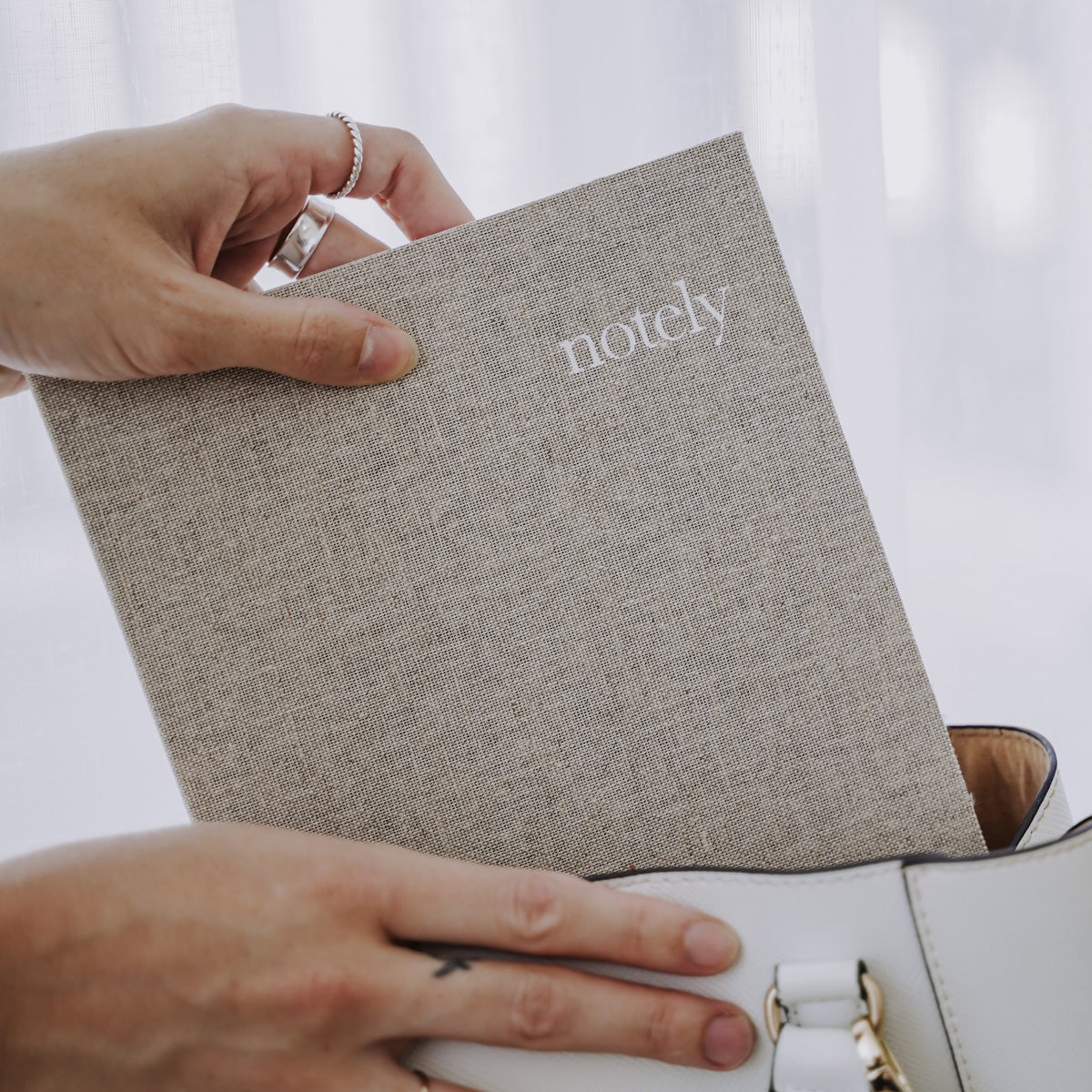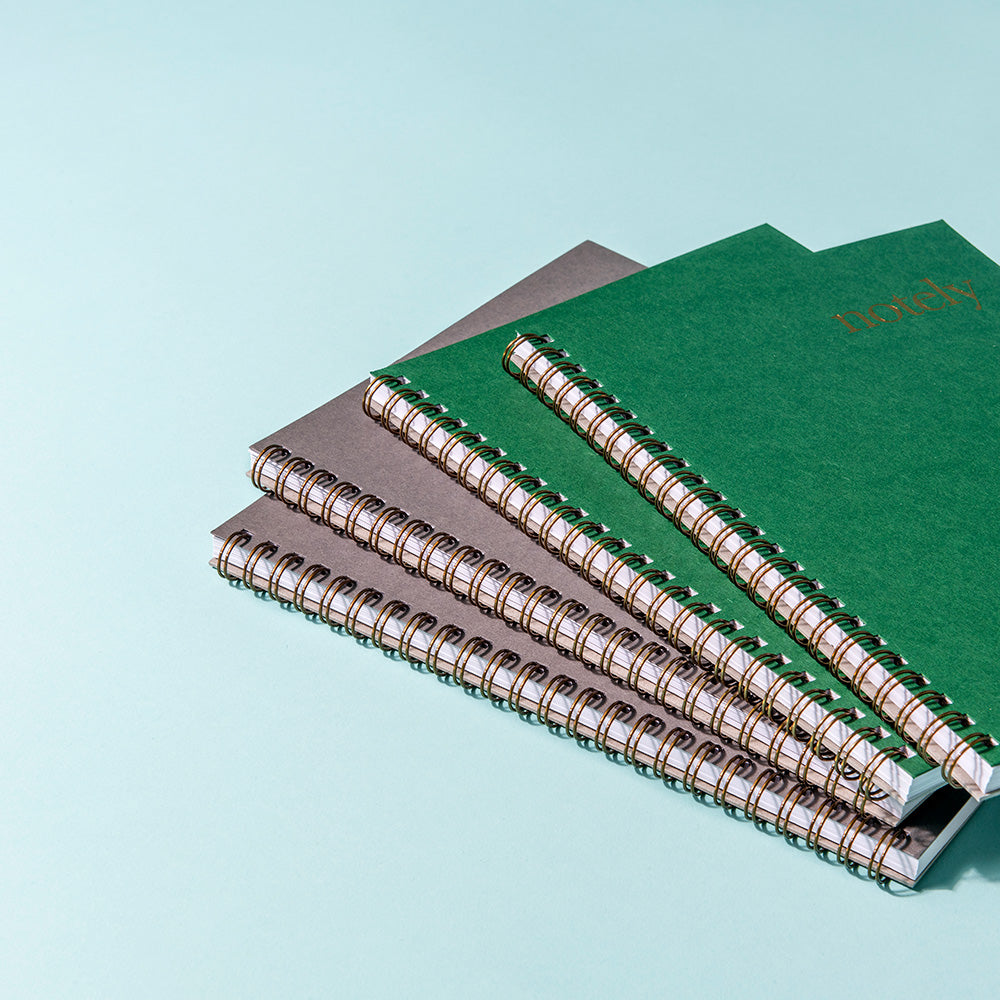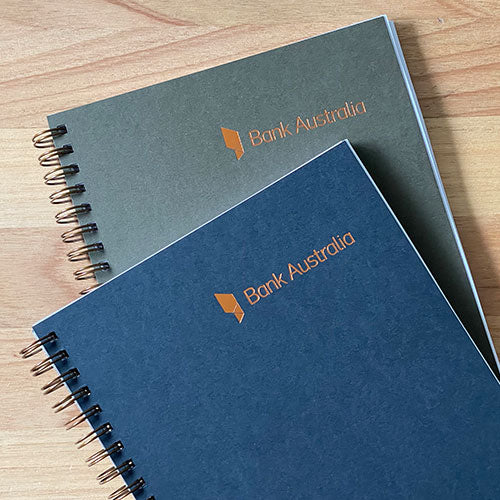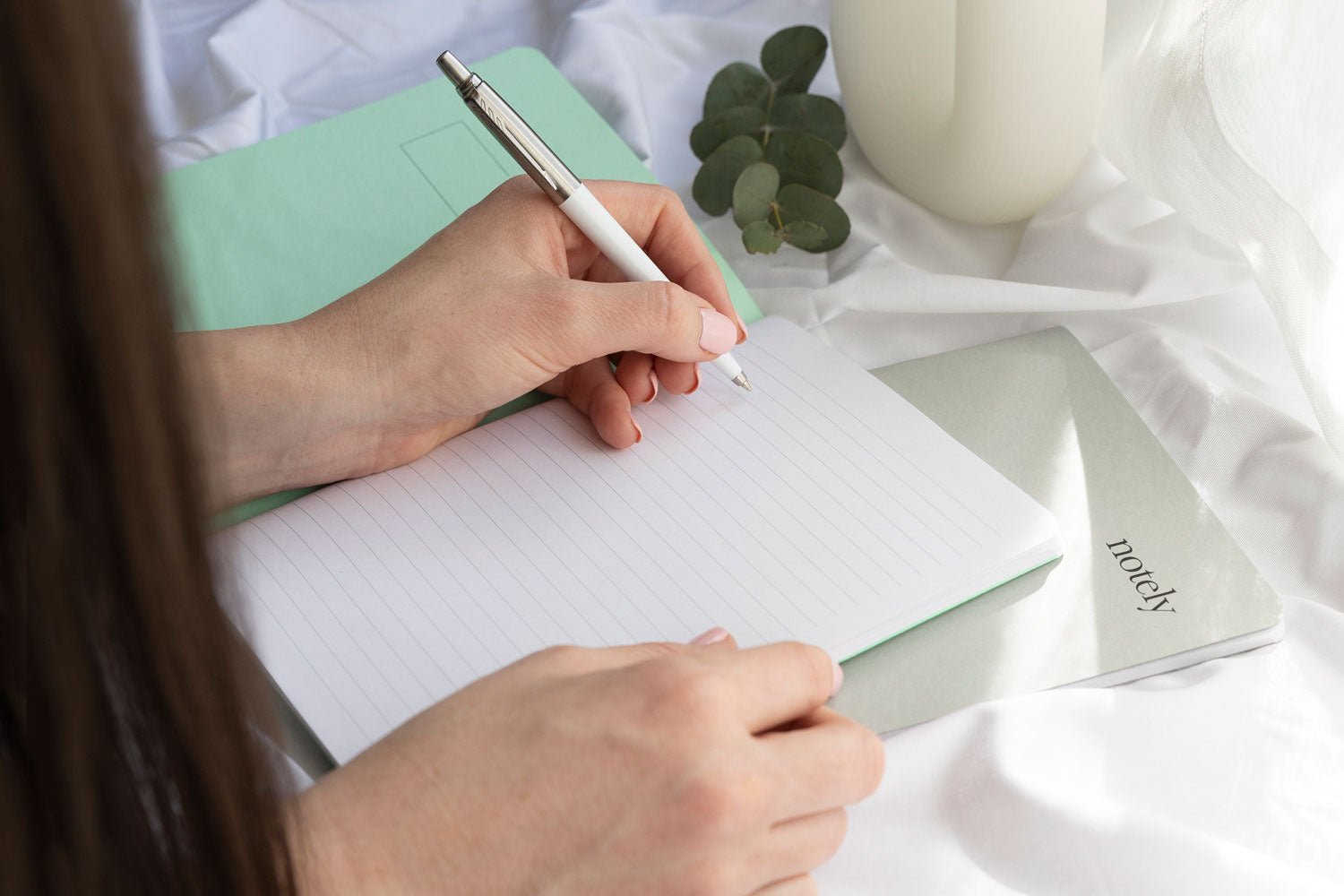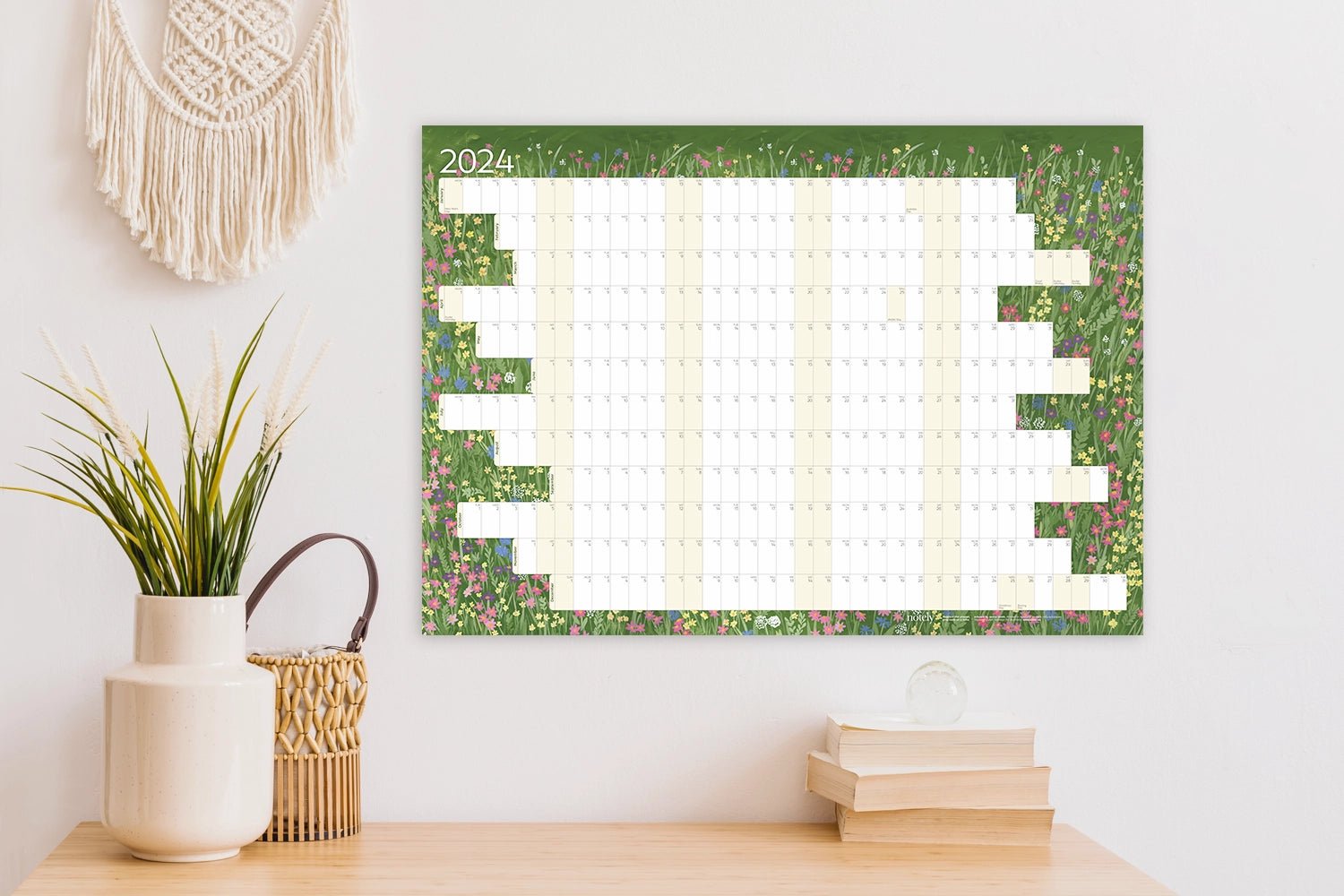Relationships are an integral part of life, in fact, according to relationship expert and psychotherapist, Esther Perel, ‘the quality of our relationships determines the quality of our lives’.
But relationships are seldom, if ever, straightforward.
Whether you are colleagues, teammates, friends, family, love interests or long-time partners, your relationships are bound to go through ups and downs, and things can get quite complicated at times.
Here are five ways you can use your journal to untangle the complex web of thoughts and emotions that build up in relationships, strengthen the relationships that matter most, and let go of those that no longer serve you.
1. Capture and explore new relationships
Author and life-writing expert, Amber Lee Starfire recommends journaling during every stage of your relationship – yes even at the start when everything seems to be rainbows and sunshine.
In her article, 10 journal writing prompts for new love, she explains that journaling gives you the opportunity to express and clarify your feelings in a safe and private way, and it allows you to celebrate the newness of the connection.
Journaling can also help to give you a clearer picture of new relationships, what they mean to you and whether or not to pursue them.
Take note of your first impressions
A great place to start is by writing down your first impressions of the person. Try to give evidence of the qualities you’ve noted. For example, He is kind. I know this because he takes good care of his elderly neighbour.
Be as honest as possible. Along with the positives try to include any qualities that you don’t particularly like and those that might be cause for concern. This way, you’ll get a clearer picture of the person, rather than simply viewing them through rose-coloured glasses. And you’ll be in a better position to decide whether you really want to pursue a relationship with them.
When you check back on this list in a few months or even years, you might be surprised at how accurate your initial observations were.
Plan your time together
Your journal is a great place to jot down ideas for outings and/or dates you’d like to go on and for making plans to ensure these go smoothly.
You could also use it to make lists of the books, music and movies you’d like to share with your new friend or partner.
Record the early days of your relationship
Use your journal to keep a record of the early days of your relationship and all the great times you’ve shared. Include notes and pictures that will remind you of the movies, books, songs and places you both love. You’ll be able to look back at this record in years to come and relive those precious memories.

2. Deepen and strengthen existing relationships
You can use your journal to express gratitude, and discover ways to nurture, strengthen and heal existing relationships.
Review your relationships
By reviewing your existing relationships in your journal, you’ll be able to clarify what’s truly important to you, what you enjoy about the relationship, the struggles you have, how you can overcome these, and how you can build on the relationship.
Start by answering the following questions:
- What do I love about the relationship?
- What would I like to change about it?
- Do I feel valued/seen/heard?
- Does this person take an interest in my life?
- Do I take an interest in their life?
- What am I grateful for about this relationship?
- Do we share the same values?
- What are our shared values?
- What do I want from the relationship moving forward?
- Do we want the same things from the relationship?
- What can I do to grow and nurture this relationship?
Vent anger and frustration
As parenting coach and bestselling author, Christine Marion-Jolicoeur says in her Huffpost article, using your journal to rant or vent when you’re angry is a good alternative form of release, rather than shouting at the person concerned. Plus, with your anger well and truly vented in your journal, you’ll be free to discuss the issue in a calm and compassionate way that won’t jeopardise your relationship.
So, next time you’re angry or upset, reach for your journal and do some stream-of-consciousness writing to let it all out – write whatever comes to mind, no matter how childish, angry or nonsensical it may be. Keep going until you’ve got a clear picture of the situation, the emotions it stirred up and what you can do about it.
Once you’ve got it all out on the page, take some time to figure out what’s really at the heart of the issue. Explore the following in your journal:
- What made you so upset?
- Why do you think this upset you so much?
- Is this a one-off thing or has it been happening a lot?
- How do you feel about the way you responded to the situation?
- What can you do in future to handle things better if this happens again?
- What would you like the other person to do differently in future?
- Put yourself in their shoes for a moment. Is there a reason that they are behaving like this? Should you try to find out what that reason is?
- How can you tell them not to do this in a way that won’t upset or offend them?
Accentuate the positive
Another powerful way you can use your journal is to focus on the positive things about your relationships.
A 2020 study by Dizon showed that using a journal to mindfully record positive attributes and express gratitude for your partner significantly increased positive problem-solving, cultivated healthier patterns of conflict resolutions, facilitated dialogue and improved interpersonal relationships.Go ahead and give it a try. Use your journal to write down:
- The things you love about your partner/friends/family members. For example:
- Three things I admire about my friend are…
- I love it when my partner does…
- My sister is great because she…
- Express your gratitude for who they are and what they do. For example:
- I am grateful for the way my partner always helps with the housework.
- I am grateful for my friend picking the kids up from school when I was sick.
- I am grateful for the support of my family when I was studying for my exam.
- Ideas for spending time with the people you love and care about. For example, outings, dates, movie nights, and catch-ups.
Start a couple's journal
Relationship therapists, such as Janae Munday, LCSW, recommend journal writing with your partner as a way to deepen romantic relationships. Your couple’s journal provides a shared space where both partners can express their feelings, make plans, send love and encouragement to each other, and much more.
Get together to write in and read your journal daily, weekly, or whenever you decide is right for you. Some fun and rewarding ways to use your couple’s journal include:
- Capturing your first year together. Our bullet journals are great for this, allowing you to get creative by adding pictures, coasters, love notes, keepsakes and more.
- Giving each other complements and stating what you’re grateful for about each other.
- Writing love letters to each other.
- Writing down your plans for the future. For example:
- Holidays you want to take
- Adventures you’d like to share
- Things you’d like to accomplish together
- Wedding plans
- Honeymoon ideas
- House-buying plans
- Family plans.
Keeping the spark alive
In Esther Perel’s excellent and candid TED talk, The Secret to desire in long-term relationships, she points out how getting a clear picture of your personal needs when it comes to desire, helps you to understand how to have a more satisfying long term intimate relationship with your partner.
When using your journal to discover what desire means to you, you could start by exploring the following:
- I shut myself off/ turn off my desires when…
- I turn myself on when…
You’ll notice that these are very different from “you” focussed statements (e.g., ‘you turn me on/off when…’) that place the responsibility for our lack of desire on the other person. Here we’re taking responsibility for our own feelings and desires.
To ensure that your relationship continues to meet both partners’ needs for intimacy, you could use your couple’s journal to share these needs and desires with each other.
Your couple’s journal will also be useful when it comes to planning intimate moments. As odd as it may sound, planning is important when it comes to perpetuating intimate relationships over the long term.
Esther points out that, if you want to keep the flame of desire burning over the long term, it’s important to accept that ‘committed sex is premeditated (rather than spontaneous) sex’.
By planning intimate moments and taking time to build up intimacy over a longer periods (days or weeks rather than hours or minutes), instead of waiting around expecting desire to suddenly appear, you’ll be cultivating a sexual relationship that satisfies the needs of both individuals, deepening your connection.
3. Deciding whether to stay or leave a relationship
Your can be a great place to work through your thoughts, feelings and emotions when you’re trying to decide whether or not to end a relationship.
In some cases, it’s clear that relationships should be severed – particularly if they have been abusive, manipulative or controlling. (If you think you might be in this type of relationship, please do seek help from a professional relationship counsellor.)
Nevertheless, it’s all too easy to get stuck in a state of agonising indecision. In her Psychology Today article, Dr Kathy McCoy states that, even under the worst of circumstances, it isn’t easy to make the decision to leave an unhappy, dysfunctional relationship.
Staying in the relationship might mean making some changes, and working out the issues. This can be really challenging. On the other hand, letting go can be painful, especially when you have formed a strong attachment to the person and/or you’ve invested a great deal in the relationship.
Journaling is a great way to break through your indecision by clarifying your thoughts and feelings and working through any doubts, fears and anxiety you might be experiencing.
If you’re unsure about whether a relationship is worth saving, take out your journal and try answering these questions based on Dr McCoy’s piece:
- Is my health and/or safety at risk?
- Are my children in jeopardy?
- Is my partner/spouse willing to consider changes that would make it possible to continue the relationship?
- Am I prepared to make changes too?
- Have patterns developed that indicate volatile and controlling behaviour?
- Does my partner violate boundaries (e.g., by reading my emails or texts)?
- Is my partner trying to isolate me from my friends and/or family?
- Do apologies and olive branches come mostly from me?
- Do periods of calm almost always follow times of conflict?
- Does my partner see this behaviour as problematic?
4. Getting over a break-up
According to this article in the New York Times, writing about your feelings is not just for teenagers and song writers. In fact, studies show that expressing your feelings in stream-of-consciousness (expressive) writing can help to mend a broken heart no matter what your age or occupation.
Researchers have shown that writing allows you to get a clearer picture of who you are as an individual, what you do, and how you spend your time outside of the relationship. This restores your sense of self and reduces feelings of loneliness and emotional intrusion.
So, whether you’re mourning the end of a friendship or a love affair, it’s worth getting out your journal and writing down all the varied, and at times conflicting, thoughts and emotions that bubble up during the grief process.
Here are a few ways you can use your journal to get over a breakup:
- Express your rage, anger, disappointment and pain
- Work through your hurt
- Unearth the lessons learned during the relationship and through the breakup
- Make a list of friends and family you can turn to for help
- Explore what’s really important to you in a relationship and as an individual
- Make plans for your future (that don’t include revenge 😊).

5. Nurturing your relationship with yourself
Journaling can help strengthen the most important relationship of all – the one you have with yourself. We’ve examined the many mental health benefits of journaling before. Here, we’ll focus on just a few ways that you can use your journal to help deepen your relationship with yourself.
Appreciate your positive attributes
Remind yourself of your positive qualities, the good things you do, and the good intentions you have towards others by writing them down in your journal each day. Celebrate who you are and the things you’ve achieved. In this way, your journal will help to build and strengthen your feelings of self-worth and self-love.
Plan times to recharge
Grab your journal and make plans to spend quality time alone, doing the things you enjoy. These outings will replenish your inner well and help you feel more energised, creative and grounded. They can take many different forms such as solo walks, visits to art galleries or simply time spent alone in a park on a blanket with a sketchpad, book, or even your journal – whatever brings you joy or inspires you!
Evaluate and change the stories you live by
Psychologists in this New York Times article agree on the value of writing as a way of reframing our negative experiences, exposing the stories we tell ourselves and reconstructing them to uncover the personal truths we’ve been wilfully or otherwise ignoring.
In the article, James Pennebaker, a psychology professor at the University of Texas and thought leader in expressive writing says, ‘The idea here is getting people to come to terms with who they are, where they want to go. I think of expressive writing as a life course correction.’
In addition to the narrative/stream of consciousness writing that will help to uncover your personal narrative, you can use your journal to dig deep into your personal world by asking and answering these questions:
- What are my values?
- What inspires me?
- What do I enjoy most in life?
- What do I want from life?
- What do I want to achieve?
- What does success mean to me?
- What would I do if I could do anything at all?
- What is holding me back? How can I change or overcome these things?
- What am I grateful for?
- What does love mean to me?
- What am I looking for from my relationships:
- With my family?
- With my friends?
- With a romantic partner?
- What frightens me about relationships?
- What are my deal breakers (boundaries) when it comes to relationships?

Ready to journal your way to relationship success?
Treat yourself to a selection of our stunning collection of eco-friendly journals and notebooks today.
Available in a variety of sizes, including A4, B5, A5, and A6, in gorgeous block colours or fabulous designs created by local artists, there’s a Notely journal for every occasion.
At Notely, we believe that you should be able to journal to your heart’s content without impacting the world’s forests. That’s why all our journals and notebooks are made from a range of FSC-recycled and FSC-mix papers.
The Notely Botanical Journal, for instance, is adorned with stunning watercolour drawings by children’s book illustrator Sophie Gilmore.
Inspired by the dreamy world of dense, lush forest and the sounds of native bird calls, this piece would make a great personal or couple’s journal.
Thoughtfully designed and printed with soy-based inks in Brisbane, Australia, the beautifully textured linen cover is 100% recycled FSC-certified paper, and the 200 inside pages are also 100% recycled and printed with grey lines throughout.
Order your journal today and help us to replant the planet, one note at a time!
With your help we aim to replant 100,000 trees by 2025. One tree gets planted with every order we receive, and every three orders protect an extra 2sqm of native rainforest.

![Spearmint A6 Pocket Notebooks [BULK 8 PACK] - Notely Lined](http://notely.com.au/cdn/shop/products/spearmint-a6-pocket-notebooks-bulk-8-pack-notely-399099_1600x.jpg?v=1699275130)
